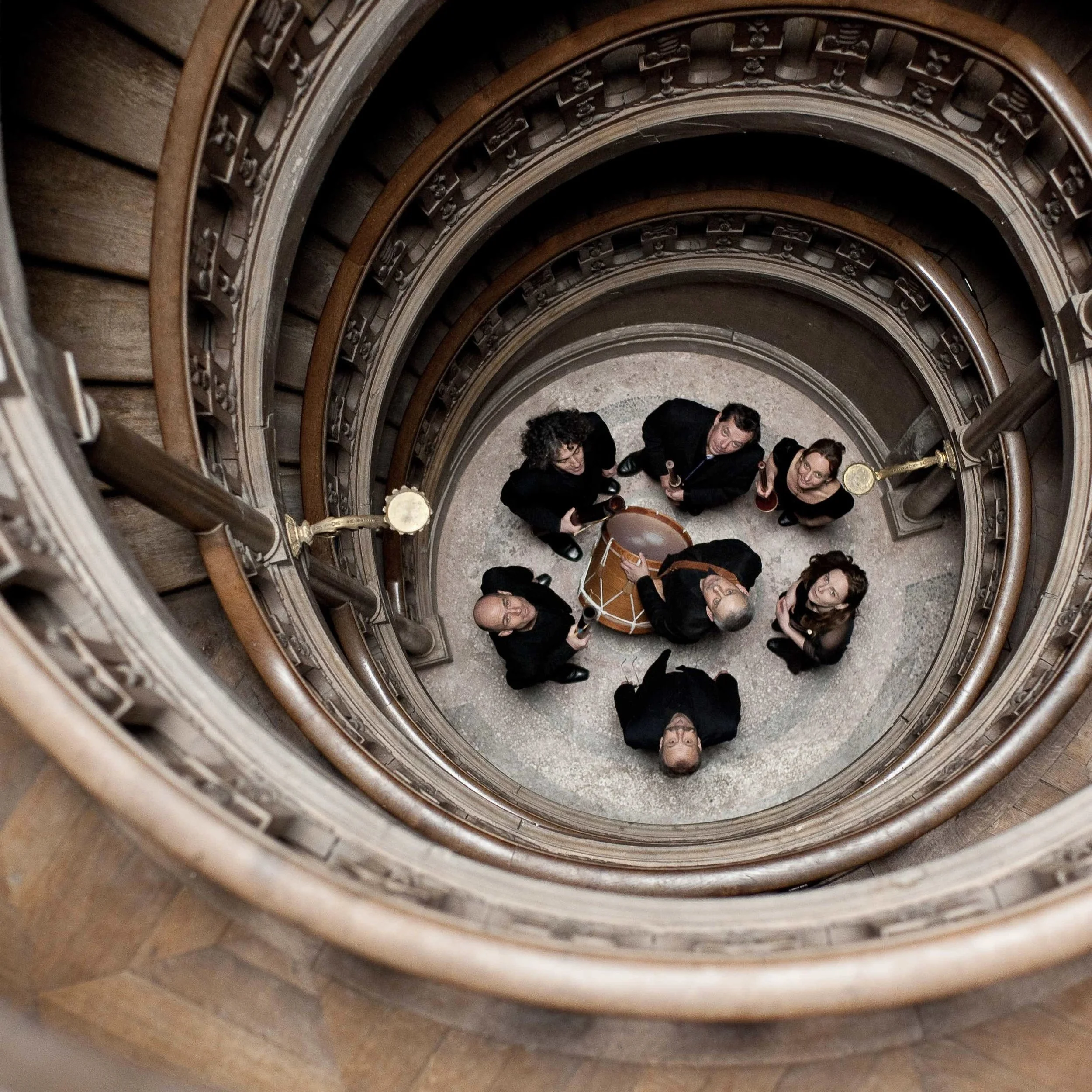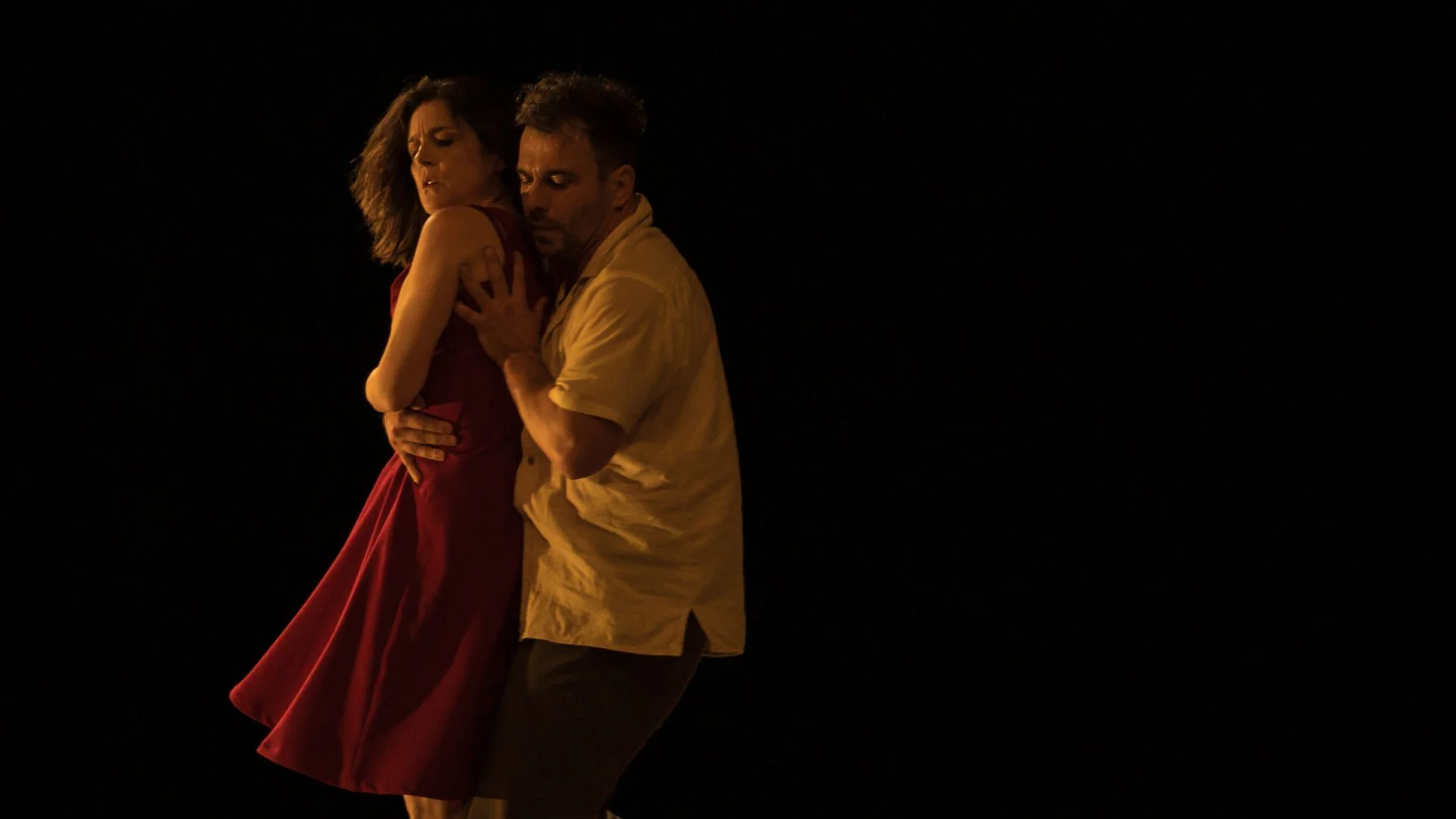Coastal City Ballet's Whispers of the Soul draws on family ties, at Lunarfest
Choreographer Justine Fraser journeys through her own loss in new classical ballet
Whispers of the Soul follows a girl’s journey into a magical land.
Justine Fraser
Lunarfest presents Coastal City Ballet’s Whispers of the Soul online on February 22
VANCOUVER-BASED contemporary ballet dancer, choreographer, and educator Justine Fraser doesn’t believe that life imitates art.
“That quote about life and art? It’s not an imitation,” she says. “Life is art. It’s the same. Great dancers are great people—great artists are great people.”
This perspective is what Fraser brings to the spotlight in her upcoming commissioned ballet for LunarFest Vancouver, Whispers of the Soul. The theme of this year’s festival, which runs to February 23, is Family is Everything— a concept that is prevalent throughout Fraser’s new work. The classical ballet blends her personal experience with loss and the dancers’ interpretation of their family and heritage.
Whispers of the Soul features 20 dancers from Vancouver’s Coastal City Ballet. The film is centred around a young girl whose dissatisfaction with life leads her on an adventure through magical lands, teaching her to be grateful for the community she has at home. Through characters like the Butterflies and Queen Mother, Whispers of the Soul illustrates how family and love come in all forms.
As a young and emerging artist, Fraser trained as a pre-professional primarily in Vancouver. She has taken the stage as a professional with Alonzo King LINES Ballet in San Francisco, Ballet Jörgen in Toronto, and Les Petit Ballet in Ontario, among many others. Since finding her choreographic voice, she has cultivated works for companies such as Ballet Concierto Cancún in Mexico and Coastal City Ballet. She is currently the artistic director of Reforming Art Productions in Vancouver, where she focuses on building inclusivity in the dance industry and empowering Canadian emerging artists through workshop-based programming.
Despite her extensive history with performing and creating original pieces, this upcoming work is Fraser’s first experience working with ballet for film. Doing so in the middle of a pandemic was no easy feat, she says. Unlike most storyline ballets of this kind, Whispers of the Soul couldn’t incorporate partner work, lifts, props or touching in any way. COVID-19 restrictions, along with a tight six-week deadline, challenged Fraser’s choreographic process.
“It was difficult, because a lot of the time, my work does involve dancing with each other,” Fraser explains. “A lot of the ideas I wanted to play with weren’t possible given the time of the pandemic.”
The production offered interesting challenges for the performers as well. Because Fraser was not permitted to incorporate props or set designs, the dancers were tasked with depicting the ballet’s storyline entirely on their own. This, Fraser says, was a fantastic opportunity for the dancers to develop their artistry and grow as performers.
“The physicality is way more difficult because they had to perform in masks,” she says. “That forced the dancers to tell the stories with their bodies because their faces were covered and they couldn’t use props. They, themselves, had to create the characters.”
Fraser’s inspiration for Whispers of the Soul came, in part, from the loss of her mother in early 2020. Through the grief and healing process, she redefined her ideas of family, discovering the importance of community and unity outside of her direct bloodlines.
“The storyline in the ballet is meant to reflect my own personal journey in moving forwards, having lost my mom and what felt like a broken family,” Fraser says. “Just like how the girl travels and meets different cultures and characters, the ballet is meant to reflect my continued journey in walking in unknown territory and feeling a lot of the time like I’m my own.
“This had been an idea of mine for a long time,” she adds. “My family, as many are in Canada, is very multicultural, so I really wanted to do something that celebrates those differences.”
Though she began the production with her own definition of family in mind, she was more interested in creating a space for the performers to investigate theirs. As an educator, Fraser believes that individuality in the creative process should be celebrated rather than hindered, further instilling this bond between life and art.
“I really believe dance training and life training are the same,” Fraser says. “If we can learn to bring those two things together in a process, the calibre of whatever work is produced is going to be more authentic. It’s going to be more real, and then that’s when it becomes more about the process as the artist than the performance—the performance is just the icing on the cake.
“I felt like I was overlooked in a lot of creative processes as I grew up,” she says. “So, every time I come into a room to rehearse, it’s important for me to put my own ideas about what I want the piece to be aside, and really work with what the dancers in the room have to offer--encourage them to not only take the steps and repeat them, but make them into something.”
This is why Fraser asked the dancers to bring their own thoughts about their histories and families to the studio and stage. The written statements the dancers submitted provided further inspiration for the choreography of the piece.
Gabriela Mores, who dances the lead role of the young girl, said “I see a lot of myself in the role I am portraying in this ballet. I came from a very small town in Brazil, where everybody knows everybody, and just like the girl from Whispers of the Soul, I did not want to stay there. I wanted to experience more than just what my small town had to offer, and with that, I ended up not liking it as much.”
Olivia Patiakas plays the Queen Mother, and she commented on how the pandemic impacted her view of family. “This time last year I was studying abroad to pursue my dreams as a dancer and my time at my school was cut short because of the pandemic, and with it all the milestones and experiences I had my heart set on before graduating,” she noted. “However, when I look back, despite those disappointments, it meant I got to spend time with my family at home which I had not been able to do for many years.”
Though the concept is rooted primarily in Fraser’s own journey, she is grateful for all collaborating members of the production, as well as LunarFest Vancouver.
“This work is a huge testament to Coastal City Ballet,” she says. “It’s a huge testament to how they’re building their dancers and how they’re building space that allows dancers to be collaborative, which is really special and really important, especially now, in the time where it feels like that’s all we’re doing: collaborating, adapting and constantly changing.”
Fraser adds, “Every time I leave a production, I leave learning more about myself through what I’ve learned about the group I’ve worked with. I think that’s something that is really important, and I think if we can keep approaching works in that way, that’s when the community builds.”















